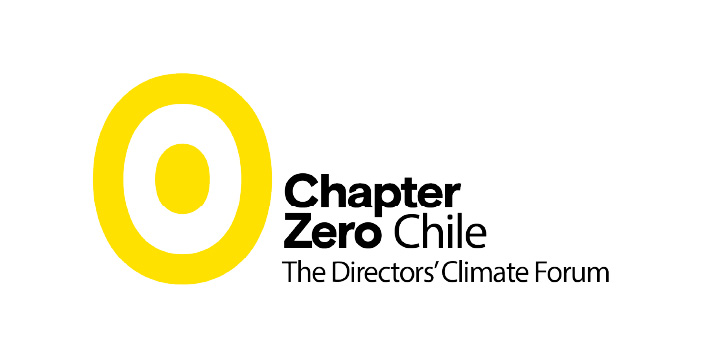Date: 25 March 2021

Host:
Chapter Zero Chile
Panellists:
- Macarena Navarrete, Country Managing Partner EY Chile
- René Muga, VP Asuntos Corporativos Anglo American
- Paolo Pallotti, CEO Enel Chile
- Francisco Ruiz Tagle, CEO CMPC
- Claudio Muñoz, Chairman Aguas Andinas and Director, Chapter Zero Chile
Moderator:
Fadua Gajardo, Directora Ejecutiva del Instituto de Directores de Chile
Decarbonising energy and systems is not simple, but countries like Chile are well placed to harvest renewable energy from wind and sun. The issue, however, is investment. In this session of the CGI’s Global Summit on climate governance in Chile, the panel looked at the barriers stopping the country from moving forward with its climate commitments, and how boards can be made to be more accountable.
If the country is to meet its Paris Agreement targets, it will have to do more than invest in switching to renewables, the panel argued. Collaboration across industries (including infrastructure) is key to driving change all the way along the value chain. Innovation and R&D can bring about genuine transformation but again, it requires serious investment.
The session looked at four main topics: energy, forestry, mining and water, and concluded that collaboration and interconnectivity across those sectors with a leaning towards a circular economy is the key to decarbonising the country faster.
Where do boards fit into this vision? Claudio Muñoz, in his capacity as Chair of Aguas Andinas, shared how his board has been discussing climate change every month for the past two years. The company has an annual integrated report (not just a financial one) that factors in environmental, social and governance issues. He also flagged a way to make climate conversation more palatable to boards: re-framing it to sound more attractive. Instead of using the term ‘sewage treatment’, he suggested ‘bio-factory’ – a tweak that could result in companies choosing to ‘recycle’ water for use in agriculture, rather than polluting rivers and waterways.
Water is an issue in Chile, and in order to build climate resilience, the country has had to invest millions in building storage, processing and coring facilities. Now, it needs to work out how opportunities can be created from negative situations (like water shortages). Paolo Palloti, CEO of Enel Chile says that’s where innovation comes in; we need new solutions for overcoming climate change challenges that are in line with regulatory developments.
Collaboration is also going to be key, and a big challenge is going to be working out how to connect smaller businesses with larger ones so that everyone is aligned in a common goal. René Muga, VP Asuntos Corporativos Anglo American, believes that the answer may lie in larger companies exploring their value chains and identifying opportunities for smaller companies – a move that would increase sustainability.